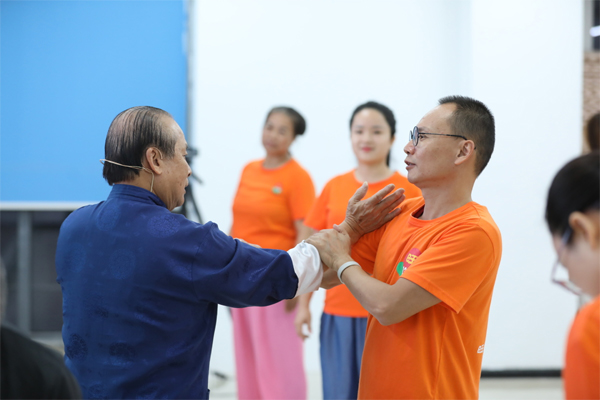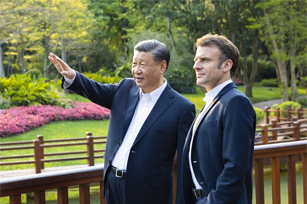Ancient art that packs a punch

Wing chun, which originated in the Qing Dynasty (1644-1911) in South China, has become popular worldwide through action films about its renowned master Ip Man and Bruce Lee. [Photo provided to China Daily]
Chen recalls one of his students, a college student who was very introverted and who gained a lot of self-confidence after doing wing chun for two years.
"She told me that on a trip to Thailand with her parents someone tried to mug her, and by instinct she used wing chun, which scared the attackers away."
Shen Liming, an I-ching (The Book of Changes) scholar and founder of Limingtang, a company that promotes traditional Chinese culture, started to learn wing chun from Chen in May.
"The philosophical principles behind I-ching and wing chun are connected, so once master Chen tells us why we are doing such moves for defense or attack, I can quickly understand," Shen says.
"He also teaches us that we are not learning to fight, but that it can strengthen our will and encourage us to help others when needed."
After six months' practice, Shen feels his physical fitness and strength have improved.
Martial arts are one important part of traditional Chinese culture, and among them wing chun is one of the most popular, he says.
"If you bring up the subject of martial art, many people are keen on knowing something about it but then look at you askance, thinking you can hurt yourself doing it and seeing little practical use for it."
However, Shen says, there is no need to worry about doing wing chun because its moves are usually just instinctive reactions for self-defense that are honed through practice.
He wants Chen to teach wing chun in Limingtang and plans to introduce courses in his branches overseas, including Singapore and Malaysia.
"Because of the pandemic we haven't been able to take master Chen abroad, so we've been taking videos of him doing wing chun for our overseas students," Shen says.
"We hope eventually to promote traditional Chinese culture by delivering more wing chun courses to more places in the world."



 Print
Print Mail
Mail

